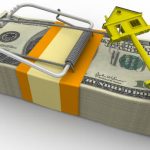Mortgage Loan Fraud Audits: The Essential Tool for Protecting Your Investment
In today’s dynamic financial landscape, mortgage loan fraud remains a significant challenge for many borrowers and lenders alike. With the potential for devastating financial consequences, it’s crucial to have safeguards in place to identify and address fraudulent activities quickly. This is where mortgage loan fraud audits come into play. Mortgage audits serve as an essential mechanism for identifying discrepancies, verifying the integrity of loan transactions, and ensuring that fraud is stopped before it can cause lasting damage.
While mortgage loan fraud audits are effective in uncovering discrepancies, they also complement other advanced audit techniques, such as securitization loan audits. These comprehensive audits dive deep into the structure and origin of mortgage-backed securities, providing an additional layer of protection for investors and homeowners alike. Securitization audits can highlight irregularities that typical mortgage loan fraud audits might miss, offering a robust defense against potential fraud. This blog will explore the importance of mortgage loan fraud audits, delve into the role of securitization audits in identifying fraudulent activities, and showcase how the combination of these audits can help stop fraud in its tracks.
- What Are Mortgage Loan Fraud Audits?
A mortgage loan fraud audit is a detailed examination of the documents, processes, and actions involved in securing a mortgage loan. The goal of these audits is to identify fraudulent activity or discrepancies that could result in a financial loss for either the lender or the borrower. Fraudulent activities in mortgage loans can range from inflated appraisals, falsified income statements, to undisclosed liens, all of which can lead to financial harm if not caught early.
Mortgage fraud can take many forms, and its detection requires a systematic and thorough review. Mortgage loan fraud audits typically involve examining the loan application, underwriting process, closing documents, and the behavior of all parties involved. This includes verifying the authenticity of financial statements, reviewing the appraisal value, and checking that all disclosures were made properly. If fraud is identified, the audit report provides a clear roadmap for addressing the issue.
- Why Are Mortgage Loan Fraud Audits Essential?
Mortgage loan fraud audits are vital for several reasons. First and foremost, they protect both lenders and borrowers from the financial fallout associated with fraudulent mortgage practices. Fraudulent activity can inflate the true cost of a loan, which may result in a higher monthly payment or an unsustainable loan term for borrowers. For lenders, mortgage fraud can lead to significant financial losses if fraudulent borrowers default on loans, leaving them with properties that are not worth their original value.
For homeowners, mortgage fraud audits provide peace of mind, knowing that their loans are legitimate and that they are not overpaying for their mortgage. These audits also offer homeowners an opportunity to correct any discrepancies or inconsistencies in their mortgage agreements. Identifying fraud early helps avoid costly legal battles or repossession, allowing homeowners to maintain their financial stability.
For lenders, a mortgage fraud audit can help ensure that the loan portfolios they manage are free from fraudulent transactions. Detecting fraud early helps mitigate risks associated with default and the potential for non-performing loans. By catching fraudulent activities in the early stages, lenders can avoid costly investigations, litigation, and reputational damage.
- The Role of Securitization Audits in Stopping Fraud
In addition to traditional mortgage loan fraud audits, securitization audits play a critical role in identifying fraudulent activities within the mortgage industry. Securitization audits are particularly valuable for investors who hold mortgage-backed securities (MBS). These securities are created by pooling together numerous mortgages and selling them as an investment. While securitization provides an opportunity for investors to profit, it also opens up the potential for fraud, especially if the underlying mortgages are misrepresented or manipulated.
Securitization loan audits involve examining the structure and details of mortgage-backed securities, identifying issues related to the mortgage’s origination, underwriting, and documentation. These audits help uncover irregularities such as improper loan classifications, false borrower information, and non-compliance with regulatory standards. By scrutinizing the securitization process, these audits help investors avoid purchasing fraudulent or underperforming assets.
The combination of a mortgage loan fraud audit and a securitization audit provides a more comprehensive solution for detecting and preventing fraud in the mortgage industry. While mortgage loan fraud audits focus on the individual loan, securitization audits examine the broader pool of mortgages, ensuring that investors are protected from systemic risks. When both audits are used together, they create a robust framework for fraud detection, stopping fraudulent activities before they can spread through the mortgage system.
- Fraud Stoppers: How Mortgage and Securitization Audits Work Together
Fraud stoppers, in the form of mortgage loan fraud audits and securitization audits, work together to create a powerful line of defense against fraudulent mortgage activities. While each audit serves a specific purpose, their combined use provides a multifaceted approach to fraud prevention and detection.
Mortgage loan fraud audits focus on individual transactions, ensuring that each loan was properly originated, underwritten, and executed. If any irregularities are found, such as falsified income documentation or exaggerated property values, the audit report will flag the issue for further investigation. These audits can also identify predatory lending practices, where the borrower is provided with a loan that is not in their best interest.
Securitization audits, on the other hand, examine the collective group of loans that are bundled together to create mortgage-backed securities. These audits assess whether the loans were originated correctly and whether the securities were structured in compliance with legal and regulatory standards. By reviewing the securitization process, auditors can identify any fraudulent behavior that may have occurred during the creation of the mortgage-backed securities, such as improper loan pooling or non-disclosure of key information.
When both audits are used together, they complement each other and enhance the overall effectiveness of fraud detection. The mortgage loan fraud audit ensures that each loan is legitimate, while the securitization audit looks at the broader context of the mortgage-backed securities. By combining these audits, you gain a deeper understanding of potential risks and can act swiftly to stop fraud from spreading.
- Testimonials and Experts’ Comments
Mortgage audits play a pivotal role in securing financial futures, and experts in the industry have long praised their ability to stop fraud in its tracks. Many industry professionals agree that incorporating both mortgage loan fraud audits and securitization audits is essential for providing a comprehensive solution to mortgage fraud.
“Mortgage loan fraud is one of the most serious threats to the financial stability of both borrowers and lenders,” says John Green, a certified mortgage auditor. “By conducting thorough audits, we can catch fraud early and prevent unnecessary financial losses. Combining mortgage loan fraud audits with securitization audits is a powerful way to protect investors and homeowners alike.”
Real estate investor Sarah Stevens adds, “As someone who invests in mortgage-backed securities, I rely on securitization audits to ensure that the loans I’m investing in are legitimate. If I didn’t have access to these audits, I would be taking a huge risk with my capital. They’ve saved me from potential losses, and I highly recommend them to anyone involved in mortgage investments.”
Additionally, lenders who have worked with mortgage audit services have seen the benefits of ensuring their portfolios are free of fraudulent activity. “We have been using mortgage fraud audits for years to safeguard our lending practices,” explains Mark Davis, a senior lending officer. “It’s crucial to verify that the mortgages we are offering are legitimate, and audits help us do that. By preventing fraud upfront, we avoid costly defaults and build trust with our clients.”
Conclusion: Secure Your Financial Future with Mortgage Loan Fraud Audits
Mortgage loan fraud audits and securitization audits are essential tools for detecting and preventing fraud in the mortgage industry. With the potential to uncover fraudulent activities that could harm both homeowners and investors, these audits provide a critical layer of protection for financial stakeholders. Whether you’re a lender, investor, or homeowner, conducting thorough audits is one of the best ways to ensure that your financial future remains secure.
The combination of mortgage loan fraud audits and securitization audits allows you to address fraud at both the individual loan level and the broader securities level. By catching fraudulent activities early, these audits help you avoid financial pitfalls, mitigate risks, and preserve the integrity of your investments.
Contact us today at (877)-399-2995 or visit Mortgage Audits Online to learn more. Secure your financial future with confidence!




